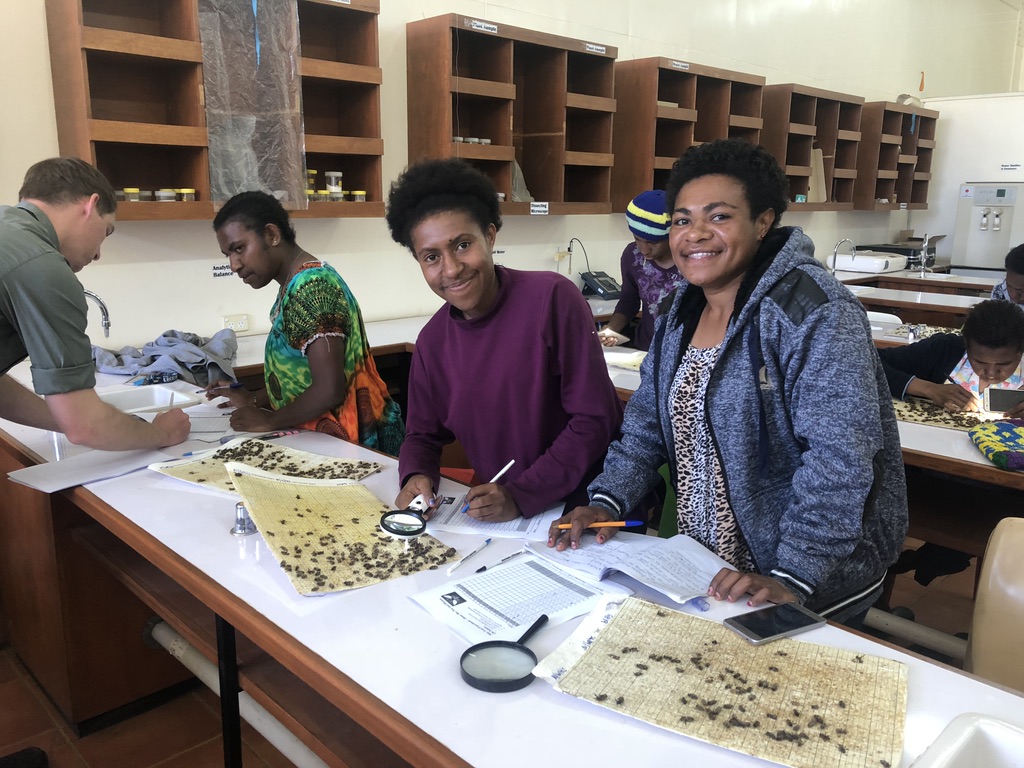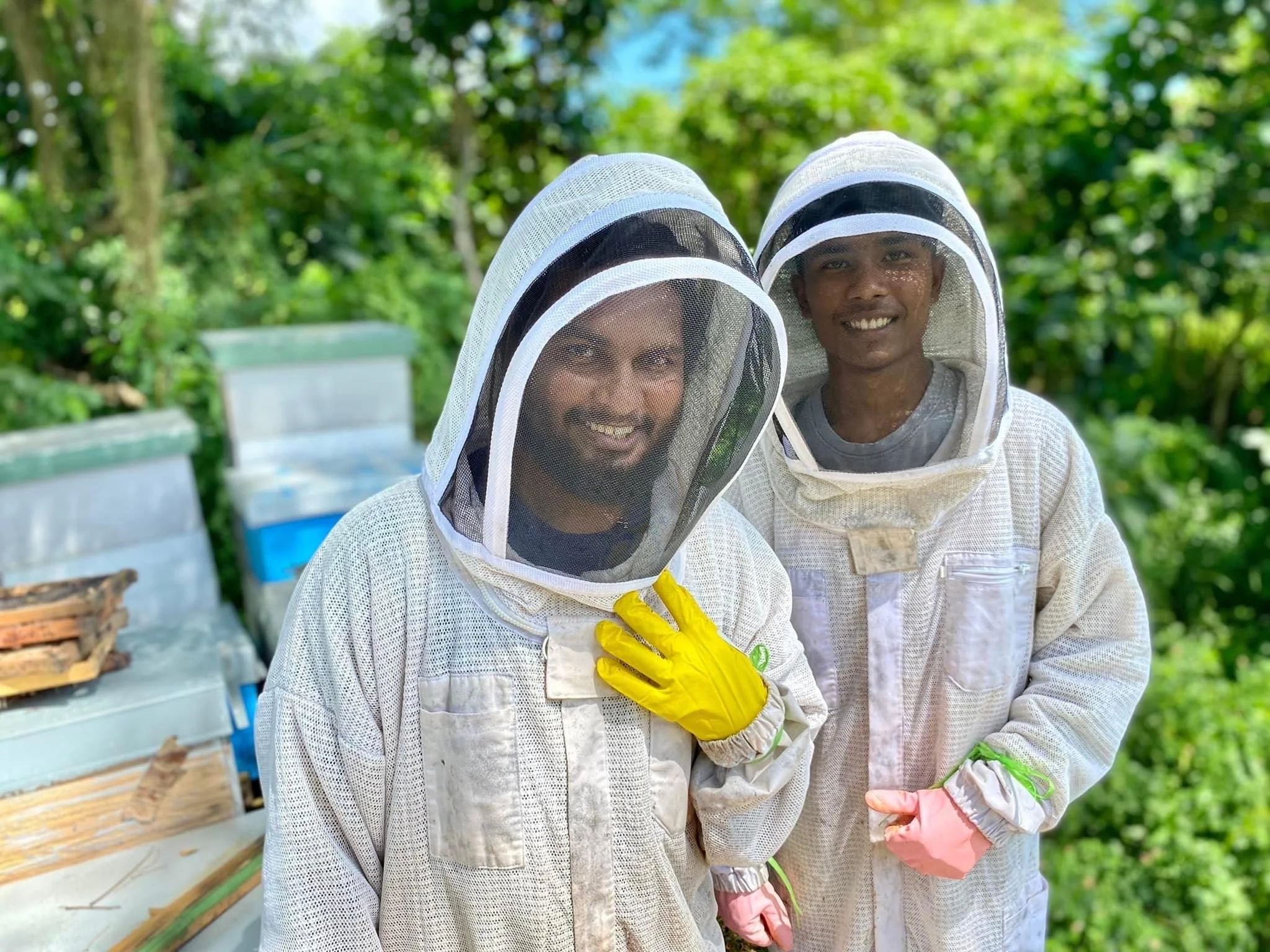
Bees for Sustainable Livelihoods supports best practice beekeeping based on leading research. Our goal is to optimise success within beekeeping development programs and achieve sustainable and equitable outcomes for marginalised beekeepers.
What we do
Bees for Sustainable Livelihoods works with local partners throughout the Indo-Pacific region to improve the welfare, profitability and sustainability of smallholder beekeeping enterprises.
We deliver evidence-based best practice training and educational services to facilitate beekeeping industry development and enable beekeepers to optimise their beekeeping management, produce quality products, effectively market their products and efficiently manage their family beekeeping enterprises.
Our ethos
We believe in helping out, not handing out. We promote local people, local skills, and local equipment as essential components to sustainability. We are committed to finding practical and affordable solutions to challenges faced by rural beekeepers. We strive to build capacity for local government and non-government organisations through train-the-trainer and mentorship programs that create lasting and impactful beekeeping programs. We understand the importance of forming lasting relationships with people and organisations, and listening and learning from them before providing advice. We strongly advocate the trial and evaluation of new approaches in-country, before scaling out.
Korove Haugu - Beekeeper in Arikaufa village in the Eastern Highlands of Papua New Guinea
Our research
Enhancing capacity for research and training is critical for growth of the beekeeping sector in developing countries and in Australia. We focus on applied research that directly informs best management practices for improved productivity, profitability and resilience of the beekeeping industry.
‘As with all livestock production systems, profitable and resilient beekeeping enterprises require attention to nutrition, sound genetics, pest and disease management and provision of appropriate extension, training and marketing to be successful’

Where we work
Bees for Sustainable Livelihoods exists to provide information and support to organisations seeking to grow beekeeping as a sustainable source of income for rural farmers in developing countries. Our work is focussed in the Pacific Islands with current active projects in Papua New Guinea, Fiji, Solomon Islands and Vanuatu.
Why bees for sustainable livelihoods?
Production of honey and other bee-related products offers significant benefits to livelihoods in developing countries. Beekeeping doesn’t require large areas of productive land, has low labour intensity, low start-up costs and high return on investment. As a result beekeeping is accessible to marginalised groups such as women, youth, the rural poor and landless. In addition, bees provide pollination services resulting in improved productivity and profitability of small-holder farms.
Improved livelihoods through beekeeping may help to reduce reliance on clearing of forests for slash and burn agriculture. With the maintenance of biodiversity and increased food security, the aggregate value of honey and bee products in developing countries is worth considerably more to local people and economies than is presently recognised.
Challenges to profitable and sustainable beekeeping development programs
Our research highlights that attrition amongst beekeeping adopters is a chronic problem, colony losses in many countries are high, and productivity and profitability of beekeeping businesses has much opportunity for growth. Beekeeping development is not as simple as handing out bee hives, running a training course and reaping the honey. Bees are livestock, and in order to be profitable beekeepers need to manage pests and diseases, genetics and nutrition, and acquire skills in product development and managing a business. The reasons for failure of beekeeping programs are diverse and context specific. In many cases the main reasons stem from:
Limited information to guide industry strategic development
Limited resources to support the development of technical knowledge and skills among farmers, trainers and extension officers
Limited access to appropriate educational materials and outcome based training
Limited access to finance, agribusiness skills and market information
New and emerging honey bee pests and diseases
Rural isolation and poor transport infrastructure
Poor post-harvest handling and quality assurance
Defensive and unproductive bees that are difficult for new beekeepers to manage
Limited and unclear ownership of donated equipment leading to neglect
The way forward
With sound partnerships focusing on problems that matter to local people and foresight based on research and best practice, these limitations can be readily addressed to deliver successful beekeeping interventions that have lasting impacts and outcomes for rural communities and beekeeping industries.











